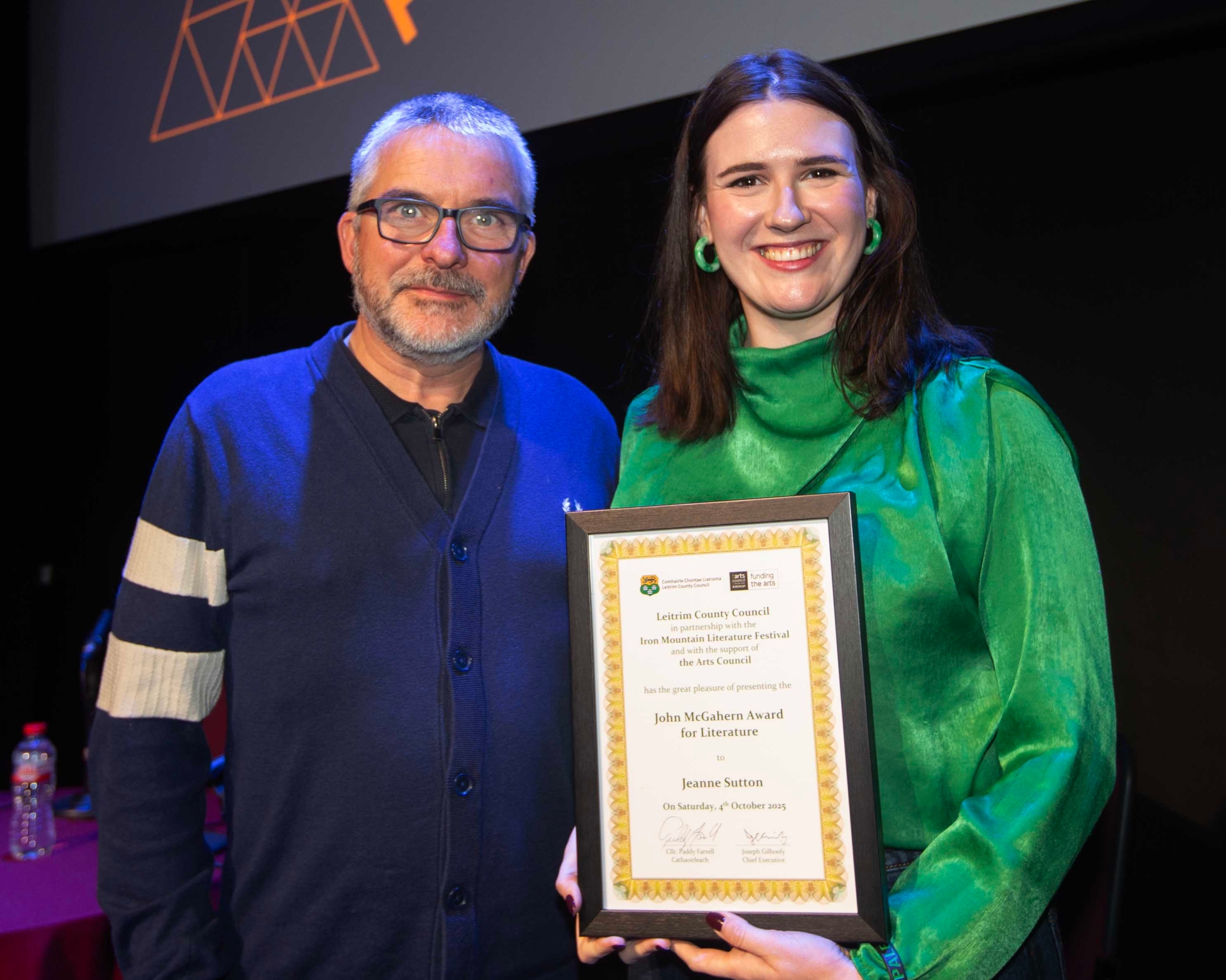
Fintan O’Toole talking at the Iron Mountain Literature Festival. Photo Brian Farrell.
At this year’s Iron Mountain Literature Festival at The Dock Arts Centre in Carrick-on-Shannon, journalist and critic Fintan O’Toole gave a riveting talk on John McGahern’s The Dark — a book still capable of shocking, sixty years after its publication.
O’Toole opened with a mischievous detour to Edna O’Brien’s The Country Girls, reading aloud the notorious “holy picture” passage that led to its banning. “Every good Irish writer was banned in their own country for thirty or forty years,” he said. “And they were banned for stuff that’s breathtaking in its banality.” For O’Toole, this moment captures the strange dance between Irish censorship and Irish creativity: “The book itself contains this act of censorship and defiance — go and ban me then.”
That defiance is hard-wired into The Dark. McGahern originally titled the book The Pit, a clue to the abyss it draws from. It was banned outright, costing him his job as a primary school teacher and effectively forcing him into exile. “The work is not being created in ignorance of what’s going to happen to it,” O’Toole noted. “It’s already there in the act of creation.”
At the centre of The Dark is an unflinching portrayal of child abuse and a society built on silence. O’Toole quoted Faber editor Charles Monteith’s famous letter to McGahern warning that the passages describing the father in bed with the boy left “no doubt” about “an actual criminal offence.” Monteith even raised the possibility of libel: McGahern’s own father had already recognised himself in The Barracks.
This, O’Toole argued, is what makes The Dark still so powerful — and so dangerous. It begins with a child punished for saying “F-U-C-K” and spirals into humiliation, beatings, and sexual violence. “It starts with obscenity,” O’Toole said. “It says: you want obscenity? Here it is. But the filth isn’t in the child’s head — it’s in the head of the society.”
He placed the novel alongside Edna O’Brien and Brian Friel’s Philadelphia, Here I Come! as part of a generational rupture in the early 1960s, when young writers began to “sacrifice their own most private selves in order to unfreeze this society.” Like Friel’s splitting of Gar into public and private selves, McGahern shows a boy thinking one thing and forced to say another. “Think what you say, but don’t say what you think,” the father warns — the perfect motto for Holy Catholic Ireland’s “organised hypocrisy.”
Yet O’Toole also stressed that The Dark is not simply an exposé but a work of art. McGahern’s clipped, dissociative prose (“he,” “you,” never “I”) anticipates Beckett’s silences. In one understated episode, the protagonist rescues his sister Joan from sexual abuse by her employer — his first real act of agency. “It’s a brutal book,” O’Toole said, “but also a book of psychological healing in the most brutal way. You cannot heal until you say it.”
Sixty years on, as Ireland continues to reckon with clerical abuse and mass graves, The Dark feels less like a relic than a reckoning. “The filth that’s in your head came out,” McGahern’s father tells his son. In O’Toole’s reading, the line applies to the whole country.
READ MORE Pick up the latest edition of Leitrim Life magazine

Subscribe or register today to discover more from DonegalLive.ie
Buy the e-paper of the Donegal Democrat, Donegal People's Press, Donegal Post and Inish Times here for instant access to Donegal's premier news titles.
Keep up with the latest news from Donegal with our daily newsletter featuring the most important stories of the day delivered to your inbox every evening at 5pm.